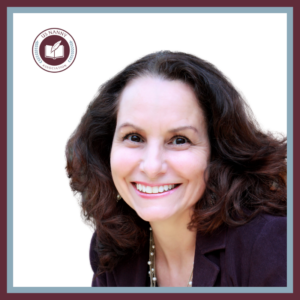Summary
If your child is in the 7th grade this year, the last time he or she experienced a complete and “normal” academic year was in the 4th grade.
A Comforting Thought for Teachers and Parents As We Enter A New School Year
We Can’t “Make Up” What Kids Have Lost Academically. We Can Make Things Better.
If your child is in the 7th grade this year, the last time he or she experienced a complete and “normal” academic year was in the 4th grade.
Take a few moments and digest that statement. Then, consider the fact that children under the age of eight have never completed a full and uninterrupted season of schooling. Quarantines and hybrid. Attempts at home schooling. Packets on the kitchen table. It is a jumble of genuine and well -meaning attempts at schooling our children, but it isn’t working and we will all suffer the consequences.
As a “teachers’ teacher”, one who has spent the past four decades in the business of schools and schooling, I have some possibly useful thoughts on how to approach the next few years. I will share them in this Opinion Shaper column. In fact, I will give you a “Word of the Day”, just like I would do when I taught gifted children in Dorchester and Berkeley counties. The idea is to take a word and use it in many ways. Our word is FLEXIBLE.
Indeed, parents and educators, citizens and decision makers must all embrace this word if we wish to move forward in the education of our children, in spite of and in the midst of what promises to be a chronic endemic of virus. Let’s apply the word FLEXIBLE to my suggestions. One of them is particularly interesting and innovative.
F……Forget about a 9 month academic calendar and transition to a full year of schooling with breaks for holidays, teacher rejuvenation, and thorough cleaning and maintenance of the infrastructure.
L….Learning Everywhere by opening libraries, museums, aquariums, parks, nature centers and other “hands on” learning spots 7 days a week and offering free days to parents and children using an “age and stage” formula. For example, Tuesdays might be free for Toddlers –Age 5, so that experiences could be curated for learning at an appropriate age level.
E…..Elevate teacher salaries. By 20% at least.
X….”X Out” unnecessary meetings and expectations for teachers and principals. Put a moratorium on testing with the exception of diagnostic prescriptive teaching at the classroom level. Use assessment to monitor learning not to manage teachers.
I…..Intentionally Infuse the Arts. Research on the impact of the fine arts to soothe trauma and to increase pupil performance across all disciplines is abundant and available. We have an outstanding Fine Arts school in this district. Let’s take the lessons learned in that setting and apply them across all sites.
B….Bring Back Retired Teachers and let them work in pairs or “job share”. These seasoned educators aren’t interested in full time jobs, but they might job share IF they were given carte blanche with their teaching. I’m talking about two retired teachers “sharing” a 5th grade class with one doing ELA and Social Science and the other specializing in Math and Science. I’m seeing these highly qualified teachers coming in ONLY to teach and doing it with the tools that they know to be best. If it is chalk boards and real books, then so be it. I envision a set of teachers like this at each grade level and in each department in the secondary schools. I predict amazing things.
L…..Listen to Teachers. They know what to do. Let them do their jobs. When you go into a surgeon’s consultation, you don’t tell her how you want your brain tumor removed. You trust that surgeon to save you. If teachers say they want to teach using literature based units or bring in a speaker or take a field trip, let them go with their visions. They are highly trained and educated experts. They are “brain surgeons” working from the inside out. ( Karges-Bone, 2022).
E….Expect behavioral issues and respond to them with empathy and an understanding that children are reacting to stimuli through a lens of trauma. This particular “trifecta of trauma”, a term that I coined in my teacher training sessions on Trauma Informed Practice, is the sum of 1) Pandemic Stress; 2) Social and Civil and Familial Fracture; and 3) Economic downturn. Schools must apply the tenants of SEL (Social and Emotional Learning) and an understanding of the effects of cortisol on brain function in order to “reset” students’ brains from a back brain survival mode into a healthy, whole brain setting. In order to assist and support teachers, there should be an additional “trauma specialized” therapist /counselor in every site.
Certainly, there are a multitude of other considerations and options that could be helpful as we attempt to restore homeostasis in our schools. My plan is to explore some of them in future columns. Finally, I am not comfortable with the idea of “catching up”. I’m not sure that’s accurate nor possible. I do think we can move forward with renewed energy and flexibility in our thinking.
Author’s Note: Dr. Karges-Bone is an educator and consultant formally in the College of Education at Charleston Southern University. Her newest work: “The SEL Matrix” was published in 2021. You can find out more at www.educationinsite.com
If you’d like more articles and newsletters on childcare, please join the US Nanny Association at usnanny.org/why-join

